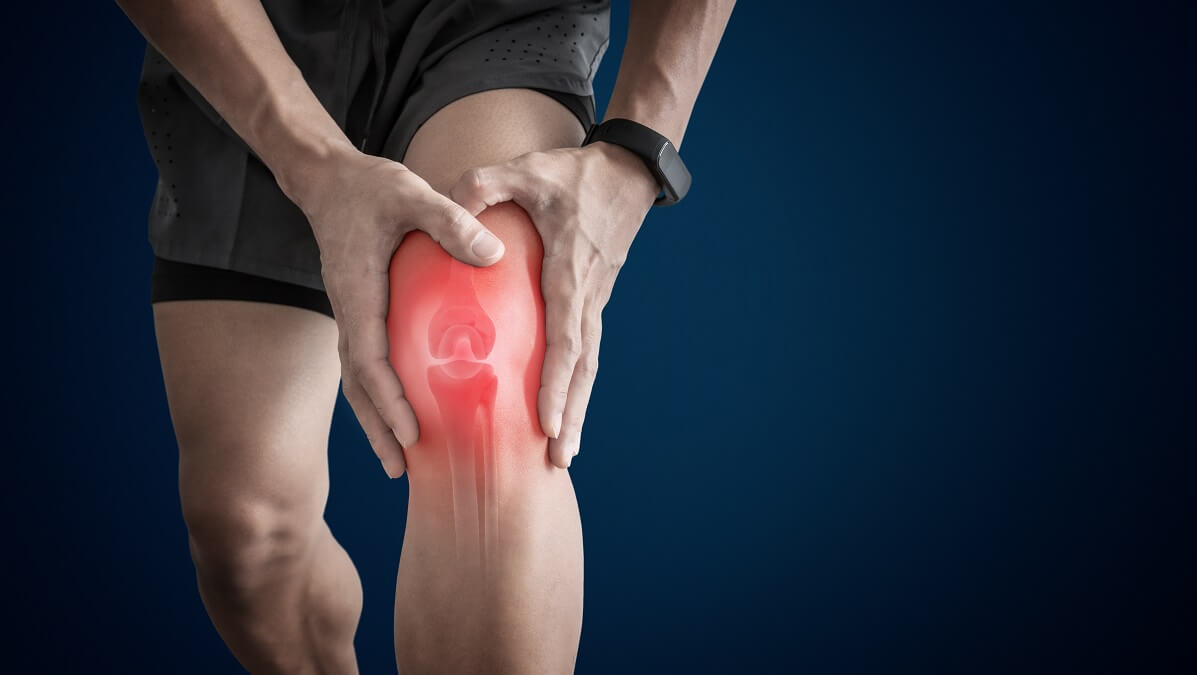Remember when our nannas used to say the weather was turning because they could ‘feel it in their bones’. My mum destroyed her knee in a car crash (not her fault) and to this day says wet weather makes her knee ‘play up’.
But is this true, or just something people say because others agree?
There are a lot of myths and misconceptions about joint pain out there that could be holding people back from proper treatment.
Let’s explore some common myths, and what you can do instead.
Knuckle under
I grew up being told not to crack my knuckles because I’d get arthritis later in life. I’m yet to understand why you would want to crack your knuckles other than some sort of nervous tic, but if you do, rest assured you will not be suffering from crippling hand arthritis when you are older if you enjoy the habit.
A doctor used himself as the guinea pig and repeatedly cracked his joints on one hand, using his other as a ‘control’. Bless his soul in the name of science, he did this for decades. Then he compared X-rays of his two hands and found no difference in the arthritis in either hand.
A larger study came to a similar conclusion. The popping sound you hear when you crack your knuckles is the result of bubbles bursting in the synovial fluid, which lubricates your joints.
It won’t cause arthritis, but it’s not good for you. According to Harvard Health, chronic knuckle cracking may lead to reduced grip strength.
Rain and wet weather make arthritis and joint pain worse
Sorry mum, your knee is probably not predicting the weather. There was some speculation that a change in atmospheric pressure could cause the fluid in joints to expand and cause pain, but there is little scientific evidence to support it.
According to WebMD, researchers took a look at the medical records of more than 11 million patient visits, matching dates to local weather reports, and didn’t see any link between joint pain and the weather.
There have been a few studies into the link between weather and joint pain, but the results have been a bit all over the place.
One possible explanation is that you are indoors when the weather is bad and moving less, and inactive joints can get stiff and painful.
Diet can’t help
Oh yes it can. First of all, being overweight puts you at risk of damaging your joints.
Taking weight off or maintaining a healthy weight removes pressure on your joints now and helps to prevent damaging your joints in the future.
Also, as inflammation often causes joint pain and stiffness, following a low-inflammation diet can ease the symptoms.
Gout no longer exists
Gout seems like it was invented for Dickensian novels, but it’s still alive and well in modern life. Not only does it still exist, but the incidence of gout is increasing, which is being attributed to a rise in obesity and diabetes – both risk factors.
Gout is a type of arthritis that leads to painful inflammation in a joint. The big toe is most commonly affected, but gout can also affect the hands, wrists, knees, ankles, elbows or any other joint.
Cop that
Copper bracelets or wearing copper will not alleviate arthritis pain. Studies have shown that you might as well wear a shark’s tooth for all the good a copper bracelet is doing to ease joint pain.
If you think it is doing you good, it’s probably the placebo effect. By all means, go ahead and wrap yourself head to toe in copper if it makes you feel better.
Supplements are all useless
A lot are, but vitamin D is the exception. Vitamin D deficiency has been linked to joint pain and is also a common cause of rickets, where the bones soften and deform.
It also reduces inflammation, a common cause of joint pain.
Do you suffer from joint pain? How do you treat it? Why not share your experience in the comments section below?
Also read: They’re packaged as ‘healthy’, but do these foods live up to their hype?


I had arthroscope for damaged knee cartilage se eral years ago. Dr wanted me back for knee replacement in 1 year. However, I lost 10 kg & pain went away. Still get twinges sometimes but manageable.